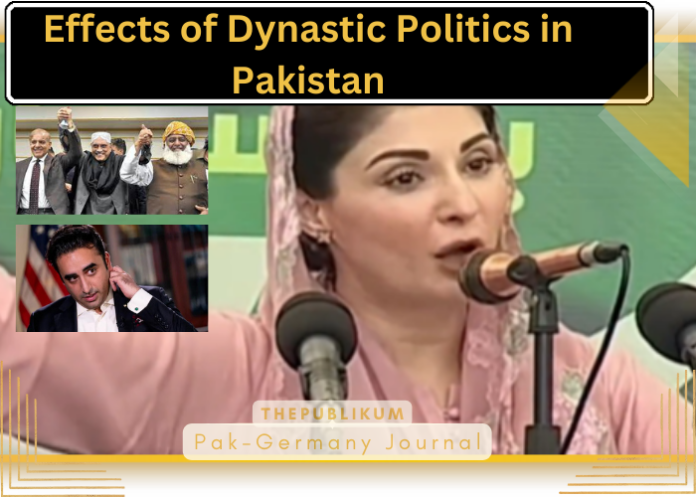Dynastic Politics in Pakistan, first of all, is no longer acceptable to the people. This is the most important factor in the quest for the effects of such types of Nepos in Pakistan. Literature, in this context, also suggests that dynastic politicians occupy electoral benefits that other candidates can not even dream of.
Driven from constituencies, data of national assembly elections during the years 2002,08 and 2013 shows that these political dynasties affect healthy competition during the elections.
They decreased the political competition by 13% in each constituency.
According to A Research Paper, SSRN:
Furthermore, we also exploit historical colonial rule variations across regions to explore the causal effect of political dynasties on political concentration. The instrumental variable (IV) estimates are consistent with the baseline results.
SSRN.com
Dynastic Politics in Punjab:
A research paper shows that Dynasticism in Punjab is more than in other provinces of Pakistan. In the year 2008, members of the National Assembly from Punjab Parliament were 53%, whereas, in India, the Dynasts Members of the Lok Sabha in 2010 were 28.6% and in the USA, Legislators in Congress in 1966–96 were only 6.2%.
`Nepo´ kids:
In the above scenario, the arguments presented by the `Nepo´ kids like Bilawal Bhutto get smashed, that “Dynastic Politics is not alien just to Pakistan, it’s present all over the world”, as he tried to mock a Western Interviewer.
Plague of “Electables”
Another important adverse effect of Dynastic Politics in Pakistan is the Plague of Electables. These are the people who usually have amassed so much wealth or often black money, which they invest in the elections and this way the money gets rolled over during the tens of years course.
Dynasticism is tied most of the time to Feudal or Landed Powers
However, during the elections of 1985, the business and trading professional class rose to the elite class in the society and their numbers were higher than the feudal class electoral candidates. Thus, this phenomenon is not based on reality, as dynasticism is not solely tied to the feudal class. This can form anywhere, any family, be it a Spiritual (gaddi nasheens, Shah jeez) family, or in the Entertainment Industry as it widely spread in our neighboring country, India.
Read More: How to End Dynastic Politics in Pakistan


